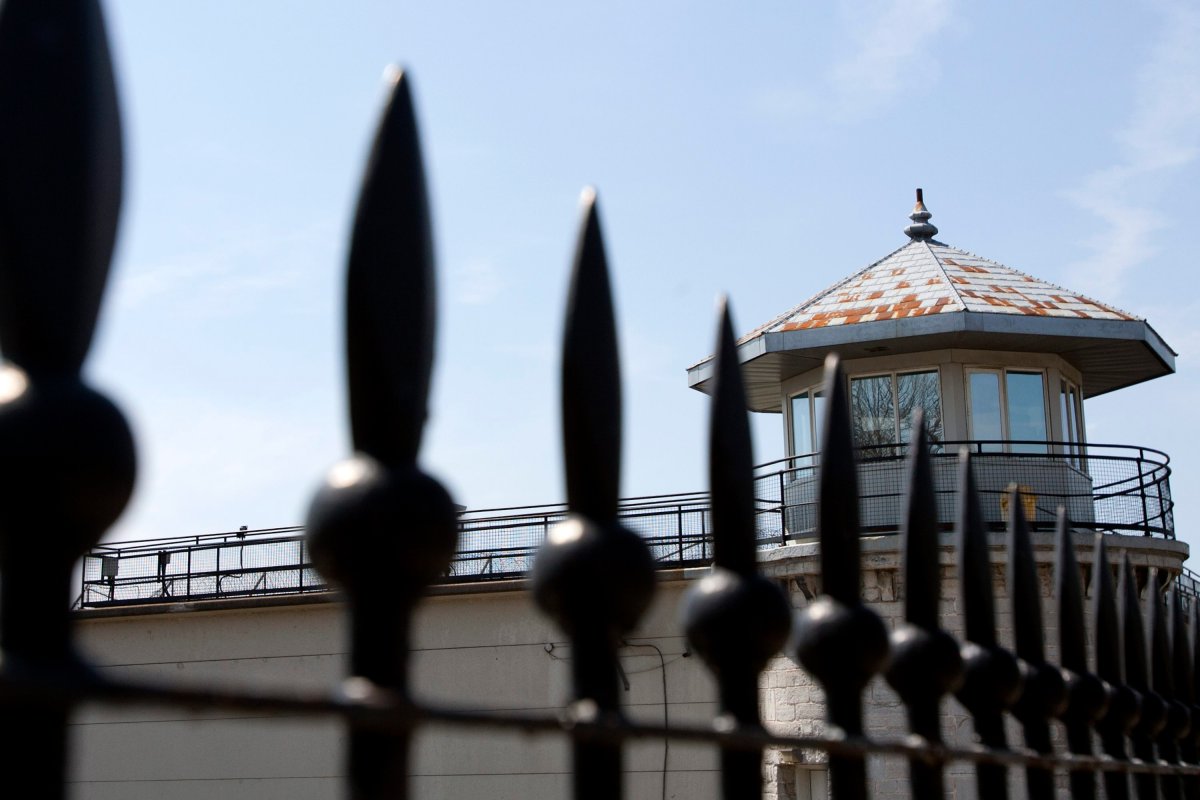OTTAWA – A Saskatchewan woman who brutally murdered her group home worker with another teenage girl when they were 15 years old has been granted day parole after serving 13 years in prison.

Catherine McKenzie, now 31, was granted day parole on July 4, according to Parole Board of Canada documents obtained by Global News.
McKenzie has “made progress” and matured, and her risk to re-offend is low, the document says.
“The Board is satisfied that you have demonstrated extremely positive compliance efforts and made very positive progress to be manageable on a day parole release,” it says.
In December 1997, McKenzie and another teen, Serena Nicotine, beat and stabbed 58-year-old Helen Montgomery to death in her North Battleford, Sask. home.
McKenzie, whose last name is sometimes spelled MacKenzie, pleaded guilty to second-degree murder and was given an adult sentence—life without the possibility of parole for seven years—in June 2001.
Montgomery’s daughter, Valerie Montgomery-Bull, discovered her mother’s body. She said in an email to Global News that McKenzie does not deserve publicity.
“What do you think I could possibly have to say to you about her parole?” she wrote.
“The sum total of her life to date has been NOTHING compared to the life of my mother, which by the way in case it has slipped your mind she was instrumental in ending.”
In a 2011 interview Montgomery-Bull said, “I found my mother in the worst mess you could ever possibly imagine a person, except being blown up.”
“All that matters to me is she’s not out.”
‘Senseless’ murder
According to parole documents, McKenzie and Nicotine began planning Montgomery’s murder the night before.
“The two of you brutally assaulted her. She attempted to flee the home which was prevented and you continued the fatal assault,” the document says.
“You stole her credit cards, cash and vehicle before fleeing the residence, then were arrested two days later.”
Nicotine has racked up years on her sentence for committing hostage-takings while in prison. Although she won’t see her sentence increase, the incidents will affect her chances of parole, a judge said in 2013.
The document says McKenzie has since indirectly apologized to Montgomery’s family and “expressed how the murder was senseless.” It also says McKenzie denied planning the murder but admitted to discussing killing the victim the night before the murder.
“During your hearing you took full responsibility for your offending behaviours and you were able to articulate the sense of remorse you felt for the victims involved in your crime,” the parole board said.
The Correctional Service of Canada was not immediately able to arrange an interview request with McKenzie.
But in 2011, she wrote that she lives “every single day with guilt and regret and there is absolutely nothing I can do to make amends for what I have done.
“There is nothing that makes living with what I did any easier. All I can do is strive to make positive choices.”
The board said McKenzie also changed her day parole destination “in order to be respectful to the victim’s family.”
McKenzie will be released into a large urban community and plans to attend a large technical institution and work in the food industry, the document says.
“The Board notes that you have saved a substantial amount of funds to facilitate your education and career goals.”
She also plans to attend weekly 12-step meetings in the community as well as church services and a peer mentoring group.
‘Initially aggressive’
McKenzie was initially aggressive, and she was charged with obstructing a public/police officer for pushing a correctional officer, the document says. She also used substances.
“Your last noted incident with substance abuse was in October 2008,” it says.
Since 2011, McKenzie has been able to function at a minimum security level, the document says. The Correctional Service of Canada does not reveal where inmates are housed, but in the past she has been incarcerated at the Okimaw Ochi aboriginal healing lodge for women in Maple Creek, Sask.
Raised on a reserve, McKenzie has a “residential school background,” and used illegal drugs and alcohol in her pre-teens. She also said she is a victim of sexual abuse.
The parole board took McKenzie’s aboriginal social history into account, it said.
McKenzie has completed all her recommended programming, the document says, and had been granted unescorted day passes since January 2013. She will be released to a halfway house for six months pending bed space availability.
She has been accepted to two facilities and has “confirmed employment and a number of positive community supports.”
“Your plan is to take courses through your current employer in the fall of 2014 and then attend post-secondary schooling in January 2015.”
Her conditions include abstaining from alcohol and drugs, and avoiding association with any people who are involved in criminal activity, including the drug subculture.
“The (Parole Board of Canada) considers a number of factors, but the protection of society is always the paramount consideration,” an accompanying parole document says.
Day parole means offenders can participate in community activities “to prepare for release on full parole.”
Offenders are supervised by a parole officer and can be returned to prison at any time if they violate conditions “or if their risk to the community becomes undue,” the document says.





Comments